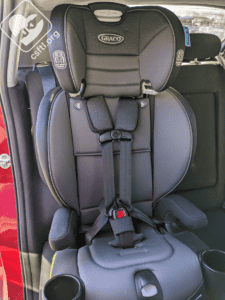Is TRICARE dental primary or secondary?
Is TRICARE dental primary or secondary?
As your secondary plan, TDP will never pay more than your dentist charges. TDP also will never pay more than it would have paid as the primary insurance plan.
What doesn’t TRICARE cover?
In general, TRICARE excludes services and supplies that are not medically or psychologically necessary for the diagnosis or treatment of a covered illness (including mental disorder), injury, or for the diagnosis and treatment of pregnancy or well-child care.
How much does it cost to get all 4 wisdom teeth extracted?
How much is wisdom teeth removal? Cost of wisdom teeth removal can range from $75 to $250 per tooth. Impacted wisdom teeth cost between $200 – $600 per tooth. All 4 wisdom teeth removal typically cost around $600 – $1100.
How many cleanings a year does TRICARE dental have?
two dental cleanings The TRICARE Retiree Dental Program covers 100% of most diagnostic and preventive services done by a network dentist. All enrollees get two dental cleanings per year.
Does TRICARE cover tongue tie?
A. Tricare Prime does cover treatment of total or complete ankyloglossia (tongue tie) to remove extra connective flesh under the tongue that can cause young children to have trouble swallowing or speaking. May 29, 2015
Does TRICARE pay for wisdom teeth removal?
TRICARE may cover services related to wisdom teeth removal through one of TRICARE’s dental insurance plans: Active Duty Dental. TRICARE Dental Program. TRICARE Retiree Dental Program.
Does the military pay for veneers?
Dental Veneers If you don’t like your teeth, the military will pay for you get new ones — as long as you’ve got TRICARE dental. This procedure costs anywhere from $925 and $2,500… per tooth. Jul 26, 2017
Does TRICARE cover periodontal disease?
Exclusions. The TRICARE medical benefit does not cover routine, preventive, restorative, emergency, prosthodontic, or periodontic dental care that is not related to a medical condition. Exclusion examples: Treatment of dental caries and periodontal disease.
Does TRICARE cover Lasik?
TRICARE coverage can cover routine eye exams, glasses, contacts, and medically necessary eye surgery. Your plan may require prior authorization or a referral first. LASIK surgery and eye surgery that is not deemed medically necessary are not covered by TRICARE vision plans. Oct 2, 2021
How Much Does TRICARE cover for a root canal?
Please note: The TDP provides selected services including endodontic, periodontic, and oral surgery at a reduced cost-share for enrollees who are grades E-1 to E-4. … Maximum Benefits. Maximum Amount Annual Benefit Maximum $1,500 per enrollee 2 more rows
Does TRICARE cover tooth extraction?
Extraction of unerupted or partially erupted, malposed or impacted teeth, with or without the attached development tissues, aren’t covered except when the care is indicated in preparation for, or as a result of, dental trauma caused by the medically necessary. treatment of an injury or illness.
What does TRICARE pay for cavities?
See what you can save… Service Without Coverage You Pay In-Network2You Pay 1 filling (amalgam) (D2140) $250 $25 1 crown (D2752) $985 $258 Total $1,593 $283 3 more rows
Is it better to pull a tooth or get a root canal?
Root Canal vs Tooth Extraction. A root canal has a better success rate than a tooth extraction because there are little to no future complications associated with the procedure. Root canals are performed by dentists to clean and restore an infected tooth. There is no need to extract or remove the tooth.
How long do root canals last?
Root Canal Treatment Success Rate According to this report, 98 percent of root canals last one year, 92 percent last five years, and 86 percent last ten years or longer. Molars treated by endodontists had a 10 year survival rate, significantly higher than that of molars treated by general dentists. Jun 3, 2021
What happens if I can’t afford a root canal?
If a root canal is delayed for too long, the bacterial infection can spread to other areas of the mouth, putting the patient at risk for serious dental problems and other medical conditions. The infection can cause something called a dental abscess, which is a pus filled sac that requires immediate medical attention.




